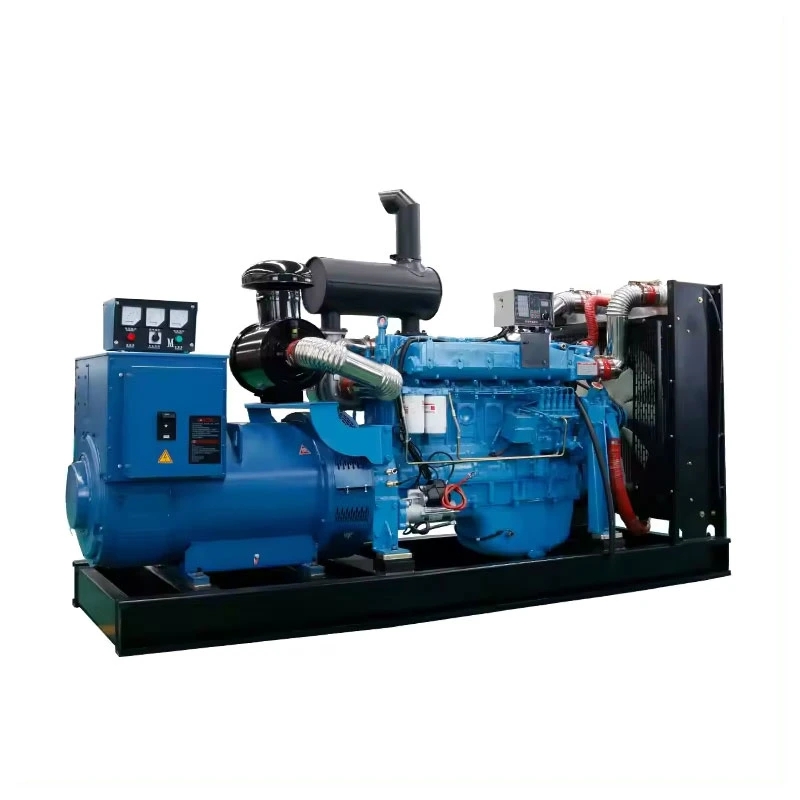Introduction
Recreational vehicles (RVs) have become increasingly popular as a way to explore the great outdoors while still enjoying the comforts of home. Whether you're camping in the wilderness or embarking on a cross-country road trip, having a reliable source of power is essential for a comfortable and enjoyable experience. Diesel generators are a popular choice for RV owners due to their efficiency, reliability, and durability. In this comprehensive guide, we will explore everything you need to know about diesel generators for recreational vehicles.
Chapter 1: Understanding Diesel Generators
1.1 What is a Diesel Generator?
A diesel generator is a type of generator that uses a diesel engine to convert fuel into electricity. Unlike gasoline generators, which rely on spark plugs to ignite the fuel-air mixture, diesel generators use the heat of compression to ignite the fuel. This results in a more efficient and reliable power source, making diesel generators ideal for long-term use in RVs.
1.2 Advantages of Diesel Generators
- Fuel Efficiency: Diesel generators are known for their fuel efficiency, consuming less fuel than gasoline generators while delivering the same amount of power.
- Durability: Diesel engines are built to withstand heavy use and are known for their longevity. This makes diesel generators a reliable choice for RV owners who plan to use their generator frequently.
- Power Output: Diesel generators typically produce more power than gasoline generators, making them suitable for running multiple appliances and devices in an RV.
- Safety: Diesel fuel is less flammable than gasoline, reducing the risk of fire hazards in the RV.
Chapter 2: Choosing the Right Diesel Generator for Your RV
2.1 Power Requirements
Before purchasing a diesel generator for your RV, it's essential to determine your power requirements. Consider the appliances and devices you plan to power, such as air conditioners, refrigerators, microwaves, and electronic devices. Calculate the total wattage needed to run these appliances simultaneously to determine the size of the generator you require.
2.2 Size and Portability
Diesel generators come in a range of sizes, from compact portable models to larger, stationary units. Consider the size and weight of the generator, as well as how you plan to transport and store it in your RV. Portable generators are ideal for RV owners who value mobility and flexibility, while stationary generators may be more suitable for long-term use in a fixed location.
2.3 Noise Level
The noise level of a diesel generator can vary depending on the model and size. Consider the noise output of the generator, especially if you plan to use it in campgrounds or other quiet environments. Look for generators with sound-dampening features to minimize noise levels and ensure a peaceful camping experience.
Chapter 3: Installation and Maintenance
3.1 Installation
Proper installation of a diesel generator is crucial to ensure safe and efficient operation. If you're not familiar with electrical systems and generators, consider hiring a professional to install the generator in your RV. Ensure that the generator is securely mounted and connected to the RV's electrical system according to the manufacturer's instructions.
3.2 Maintenance
Regular maintenance is essential to keep your diesel generator in optimal condition. Follow the manufacturer's maintenance schedule and guidelines for oil changes, filter replacements, and overall upkeep. Inspect the generator regularly for signs of wear or damage and address any issues promptly to prevent costly repairs in the future.
Chapter 4: Operating Tips and Best Practices
4.1 Fuel Quality
Use high-quality diesel fuel to ensure optimal performance and longevity of your generator. Avoid using old or contaminated fuel, as it can cause damage to the engine and affect the generator's efficiency.
4.2 Cool Down Period
Allow the generator to cool down before shutting it off to prevent damage to the engine. Running the generator under a light load for a few minutes before turning it off allows the engine to stabilize and reduce internal temperatures.
4.3 Load Management
Avoid overloading the generator by running more appliances than it can handle. Distribute the load evenly among the appliances to prevent strain on the generator and ensure stable power output.
Chapter 5: Troubleshooting Common Issues
5.1 Starting Issues
If your diesel generator fails to start, check the fuel level, battery connections, and fuel filters for any issues. Ensure that the generator is properly primed and that the fuel is clean and free of contaminants.
5.2 Low Power Output
If your generator is producing insufficient power, check the load on the generator and adjust it accordingly. Inspect the air and fuel filters for clogs or blockages that may be affecting the power output.
5.3 Excessive Noise
If your generator is making unusual noise, inspect the engine and components for loose or damaged parts. Tighten any loose bolts or connections and lubricate moving parts as needed to reduce noise levels.
500kw diesel generator : Safety Considerations
6.1 Carbon Monoxide Poisoning

Never run a diesel generator inside your RV or in enclosed spaces, as this can lead to carbon monoxide poisoning. Always operate the generator outdoors in a well-ventilated area to prevent the buildup of toxic fumes.
6.2 Fire Hazards
Exercise caution when refueling the generator to avoid spills and fire hazards. Keep flammable materials away from the generator and ensure that the exhaust system is properly maintained to prevent the risk of fire.
Conclusion
Diesel generators are a reliable and efficient power source for recreational vehicles, providing the electricity needed to run appliances and devices while on the road. By understanding the advantages of diesel generators, choosing the right model for your RV, and following best practices for installation and maintenance, you can enjoy a safe and comfortable camping experience with your diesel generator. Remember to prioritize safety and regular maintenance to ensure the longevity and performance of your generator for years to come.
